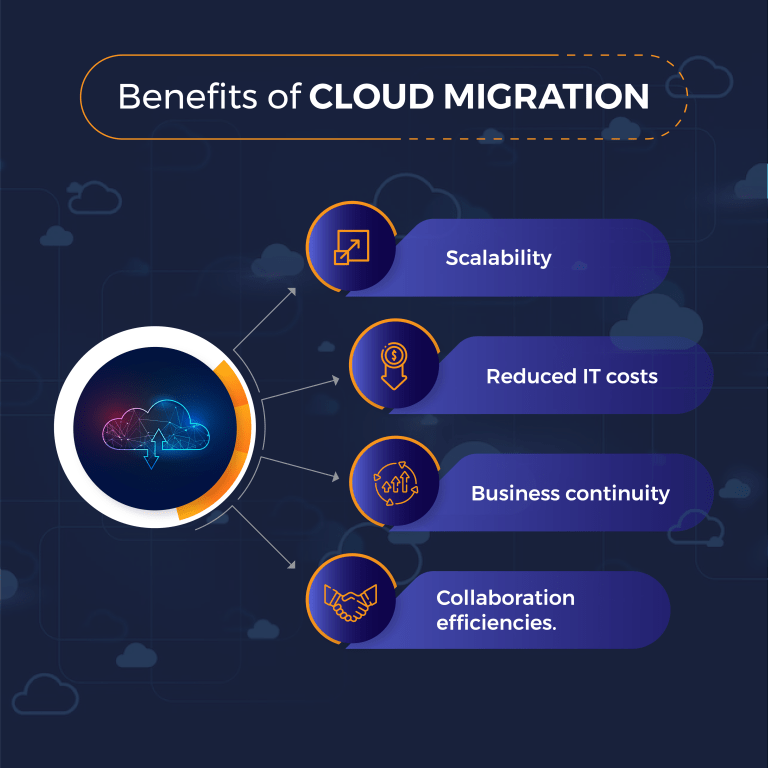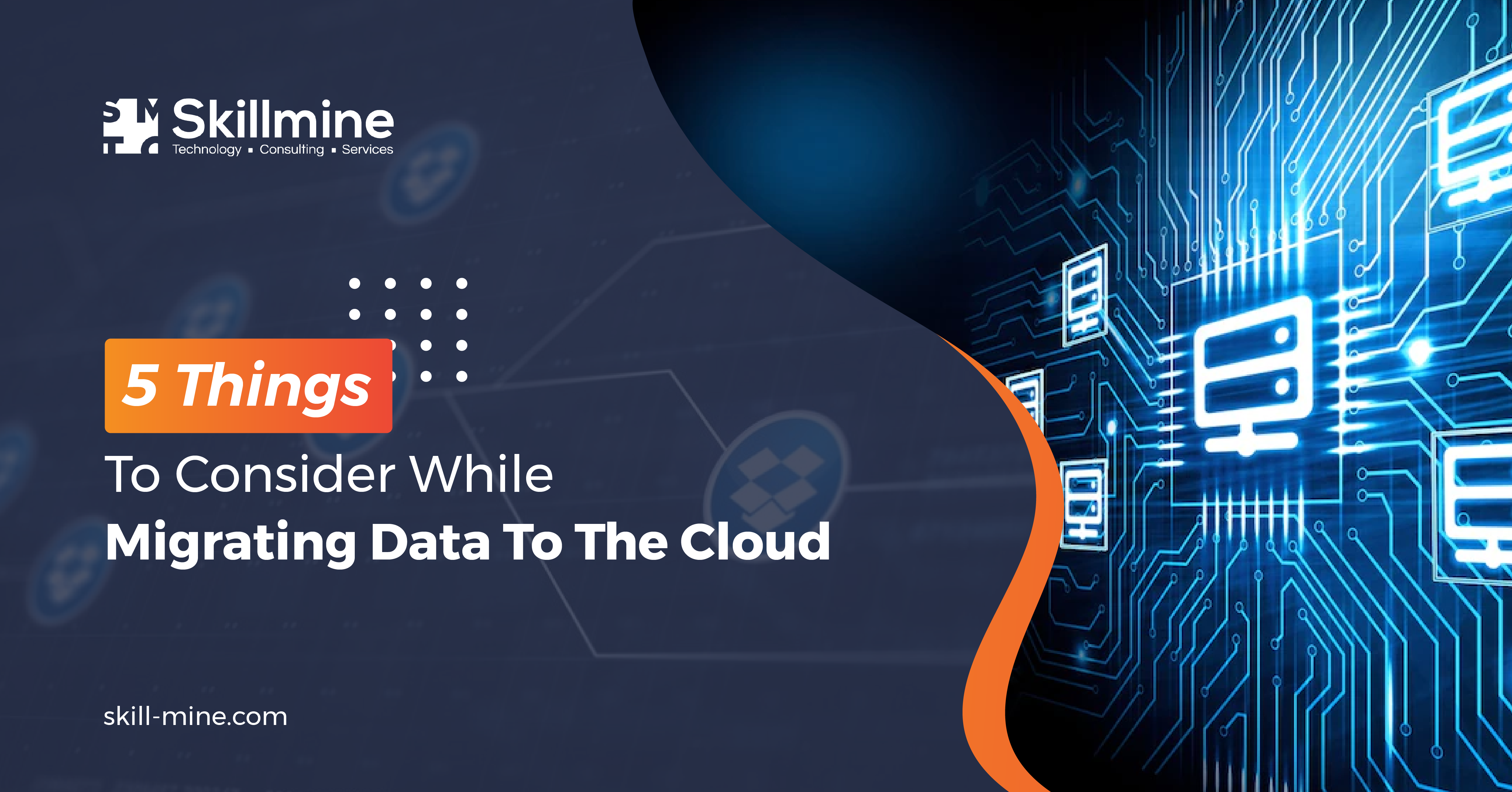A global e-commerce platform selling crafting supplies wanted a solution that could ensure long-term scalability and sustainability while spending less time maintaining infrastructure. After a detailed vendor selection process, the business narrowed down to Skillmine. Skillmine deployed the business in a hybrid environment, reducing risk while achieving all its other objectives.
One of the key avenues for business success is cloud migration. By increasing flexibility, accessibility, and cybersecurity, a cloud-based solution can promote operations and productivity for your business. Take a look at a few points to consider before you migrate your business to the cloud environment.

Define Your Business Goals
Before moving to the cloud, it is essential to define your business goals. Make a list of all the business impacts that the cloud could bring. Once your business goals are identified, a deployment model that suits the same can be chosen. Cloud deployment models, Iaas, Paas, and SaaS, offer diverse levels of flexibility and control. Choose one after analysing the benefits and drawbacks of each one.
Security
Security is another factor to consider while migrating your data to the cloud. Since security and compliance are critical considerations for every business, a successful cloud migration strategy involves the best disaster recovery services and control of security risks. New data sharing and protection policies may be created to protect sensitive data. Choosing a reliable cloud service provider is equally important to prevent your company from being on the wrong side of litigation.
Cost Optimization
The costs on the cloud are less than on-premise systems. Cloud not only provides a cost-effective way to handle business operations but also provides relatively faster ROI. Once you have decided to migrate to the cloud, analyse the different ways it fits your budget. Make sure your cloud service provider follows a robust methodology for the deployment, with minimum cost.
Scalability
Though applications on the cloud can be scaled, the fact that even the cloud has limitations can’t be neglected. Pay attention to the many “ceilings” including organisation, storage, people, technology, and cost, while developing a cloud strategy to assess how much and how far your application is scalable. Identifying your current software’s cloud compatibility is also very important.
Data Location
Data loss can have severe consequences for organizations. Since it is challenging to recover deleted data, it is essential to store your data at a location that is not contractually locked. Pick a cloud station that enables you to move around quickly, impulsively and with visible results.
Steps for migrating to the cloud
Formulate your strategy and establish the business case: The initial query revolves around determining the business benefits of availing cloud migration services. It’s crucial to link cloud migration to specific business outcomes rather than just a technological endeavor.
Conduct discovery and assessment: Understanding what to migrate, where to migrate it, and when to migrate it is paramount. Managing risk entails evaluating how applications might perform under significant infrastructure alterations. Businesses must assess their existing infrastructure, applications, and data landscape to identify the most suitable components for migration.
Execute the cloud migration: This phase involves the substantial task of transferring assets to the cloud. Cloud transformation services encompass modernizing existing applications, developing new cloud-native applications, and reshaping architecture and infrastructure. The ultimate aim is to establish a new technology operating model and culture that fosters innovation and agility.
These are the primary categories of cloud migration:
Re-host (lift & shift): This entails transferring an application from an on-premises host to a cloud computing infrastructure. The process typically starts with simpler items possessing minimal dependencies, low business impact, and no regulatory constraints. As maturity increases, more complex items are migrated.
Re-platform: In this approach, the decision is made to migrate to an operating system version based on CNaaS Platform Standards, provided the application can support it. This helps reduce the overall number of enterprise-supported platforms, thereby lowering operational expenses.
Re-factor: In this method, the company updates various components of an application to align with enterprise standards, functional requirements, and security needs. This may involve upgrades to technologies such as .Net, Java, and other frameworks.
Conclusion
Cost, operational, and computing efficiency are just a few business advantages of moving to a cloud environment. However, if you choose the wrong cloud migration service provider or consultants, you may run into risk factors like infrastructure vulnerability, security concerns, and data loss. Skillmine is a pioneer in the field of cloud transformation services. Our cloud solutions have been helping businesses improve their operations by utilising the potential of the cloud environment.
Looking for expert technology consulting services? Contact us today.





